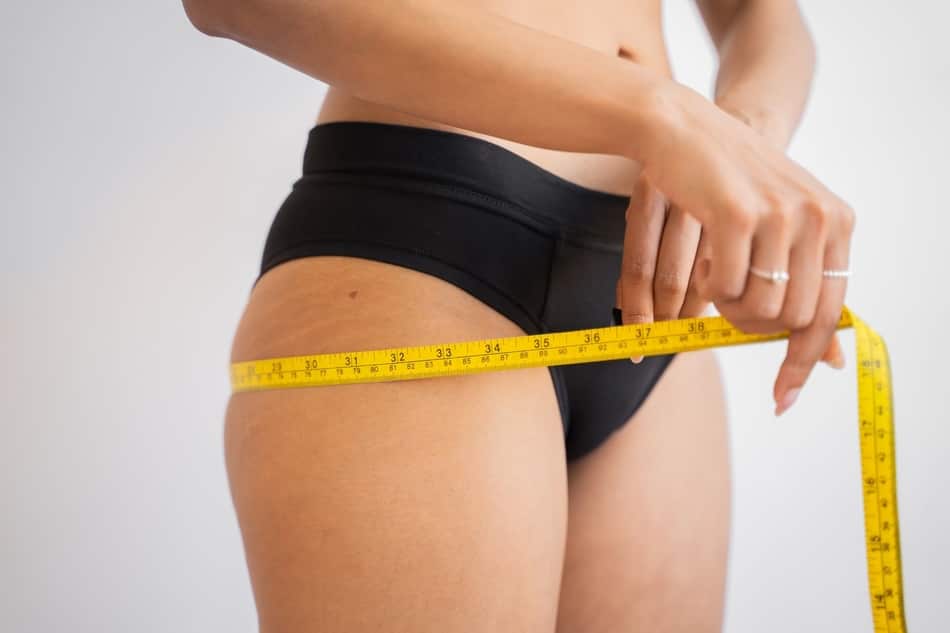
One meal a day is a form of intermittent fasting that allows you to get in shape relatively fast. That’s why it’s been so popular. However, some people may wonder will they gain weight after doing OMAD.
You won’t gain weight after OMAD if you follow the process correctly. People gain weight after any weight loss diet because they haven’t created a new habit. So as soon as they finish the diet, they move back to their old lifestyle.
In other words, they treat OMAD like a weight loss retreat where they think that couple of weeks of intermittent fasting will magically solve all of the problems. And after 2 weeks they just going back to the same life. So it’s like going on a juice cleanse. It’s not doing anything.
Before I give you the solution let’s explain few things.
Is It Possible To Gain Weight After OMAD?
It is not possible to gain weight on OMAD. If you’re eating only one meal a day, you will be in a caloric deficit. This means your body will start using internal sources (fat) for energy. The reason why people gain weight is that they binge for few days in-between.
Another obstacle people have is that they notice they are gaining weight on OMAD. And they wonder why they are not seeing any results?
So the OMAD is not the problem. The problem is the problem. If you’re finding yourself stressed out, frustrated or lonely, and as a result, you feel so overwhelmed that all you can think of is food to feel better again, you will jeopardize your results.
The easy way out from that is to first get some self-awareness. What is the problem here?
I’m not trying to be judgemental here. I’m just the exercise physiologist. I’m not here to be poetical about life. I believe that life is to be lived to a degree, and I don’t want to tell anyone how to live their life. So look at it as a description of consequences rather than judgment.
For instance, if you find yourself more reflexively reaching out for a glass of wine after a long week, that’s ok. But if you notice that a glass a week is not enough, and now you need a few glasses more, ask yourself.
“Ok. What is going on here? Why I’m I feeling like I need that now?”
Usually people use alcohol to numb anxiety. So alcohol is not the problem. The anxiety is.
The same goes for food. If your lifestyle gives you a lot of worries, stress, and anxiety, people will reach out for food to escape that negative feeling. That’s why people overeat and gain weight.
The easy way out from that is to check-in with yourself. What else is going on right now?
Because you cannot fix the problem is you’re not aware there is a problem.
So to smoke out the real issue you can use something like a meal journal. The difference between regular caloire counters and this food journal is that caloire counters just measure caloires.
You don’t need to measure caloires.
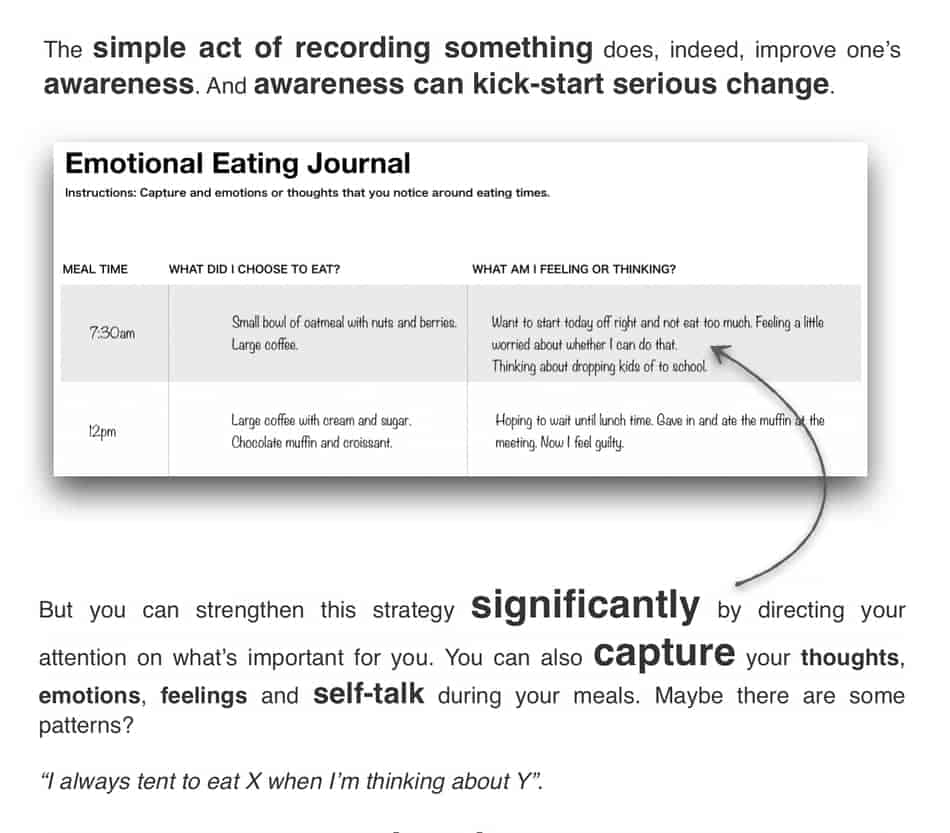
What you want to track is your feelings, thoughts and emotions that you have during the day and around the meal time.
Its not complicated. Anybody can do it
For instance, if you find yourself that you feel a sudden urge to reach out for food, grab a diary and write down exactly how you feel right now.
You may discover things that you’ve never paid attention too. You may find some “triggers” that seems to always push you towards the unwated behaviors.
So once you identify those triggers, now you can be more mindfull and stop or at least minimize the occurance of those triggers.
Trigger can be anything. Places, people, situation, environment, emotion, thoughts or actions.
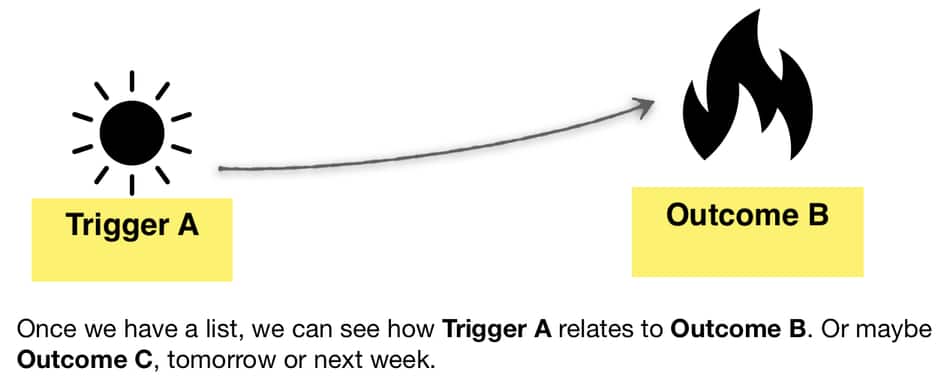
Whenever I’m doing X, I feel stressed out and want to eat.
Whenever I’m with Y person I seem to feel anxious about myself and eat more.
Every Wednesday I seem to be more stressed-out than on any other day of the week.
This way you can easily “see” is the reason that makes you gain weight. But if you don’t identify those triggers, how are you gonna change?
People can lose weight on any caloric restriction diet. Doesn’t matter if that’s one, two, or three meals a day. What most fascinates me is that people can eat and not even realize it.
One day my girlfriend took a car to do some shopping. And after a couple of days, I realized a bag of McDonald’s take away in the back seat. I’ve asked her when did she manage to grab a McDonald’s? And for the first 5 minutes, she wasn’t able to tell me.
She forgot.
She completely forgot that she actually went to the drive-thru and order food. She said she was focused on something about her work, she was listening to a radio and was calling her friends at the same time. So she was distracted and her mind was somewhere else.
And that’s a very common scenario. We live in a hyper-distracted environment where everything is battling for our attention. Many studies show that distraction makes us eat more than usual without even realizing it (source).
So let’s say if a person needs to lose 75 pounds, and he says “I only eat chicken salad” he actually is telling the truth. Because at the moment this is what he can remember.
He cannot remember compulsive eating several times per week. Or few glasses of wine everyday.
So the only reason why you may gaining weight on OMAD is that somewhere along the way you got distracted. And you ate without even realizing it.
It happens with everyone!
The easy fix is to start recording what you eat. The simple act of writing down what you eat improves your self-awareness and can help you stay more mindful.
But people are stubborn.
I think the evidence is pretty overwhelming that people don’t write down what they eat, and they don’t want to log in their food intake. The evidence is equally overwhelming that it works, and it’s the easiest way to top binge eating (source).
So my best advice is to give it a shot. It’s free. It doesn’t require you to put any skin in the game or some extra commitment.
You can use a simple journal like this.
How To Not Gain Weight After OMAD?
To not gain weight after OMAD, you need to be able to eat less food, even with 2-3 meals a day. People who quit OMAD should have already a strong understanding of how does hunger feels and be able to differentiate psychological hunger from physical hunger.
Think about your body as a vehicle that is operating on two separate tanks. Tank P and Tank E. And think about your hunger signals like dashboard lights. Hunger signals coming from the Tank E dashboard show that you have psychological needs that aren’t adequately met.
Hunger signals coming from the Tank P dashboard show you that your body needs food so it’s to eat. When you can’t tell the difference between physical and emotional hunger, you are likely to satisfy emotional hunger with food.
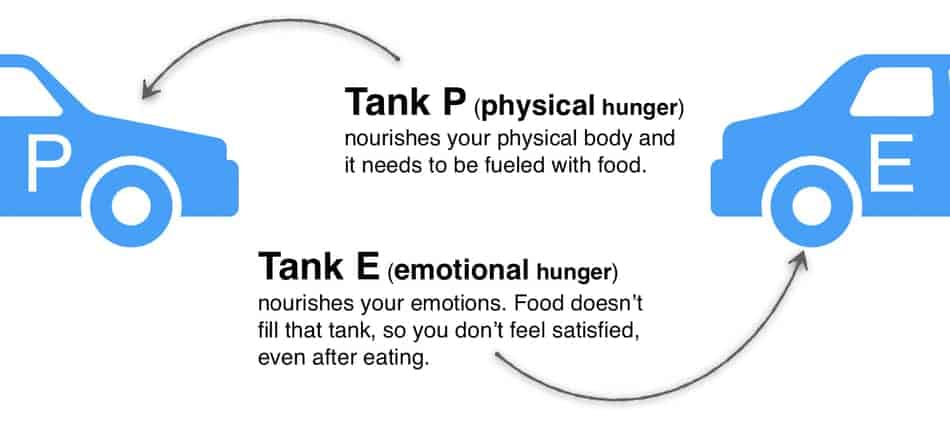
But that will only temporarily hide the discomfort of unmet psychological needs.
It will take a lot of food to mute and silence the emotional hunger. Because no food can fill Tank E, you are likely to feel hungry again soon, regardless of how much you eat.
The most powerful, yet easiest way to change our behaviors is to consistently write down what we feel, do or think.
This means your emphasis here is NOT on what you eat, but on how you feel around your foods.
Food Journal
Using a food journal is easier than you may think. All you need to do is write down what you choose to eat (without any calories or grams of foods), things that are on your mind, and your feelings. That’s it.
It’s simple. Yet many people don’t do it. Because they may feel like this stuff doesn’t work. Until they try. And they realize how powerful simplicity can be.
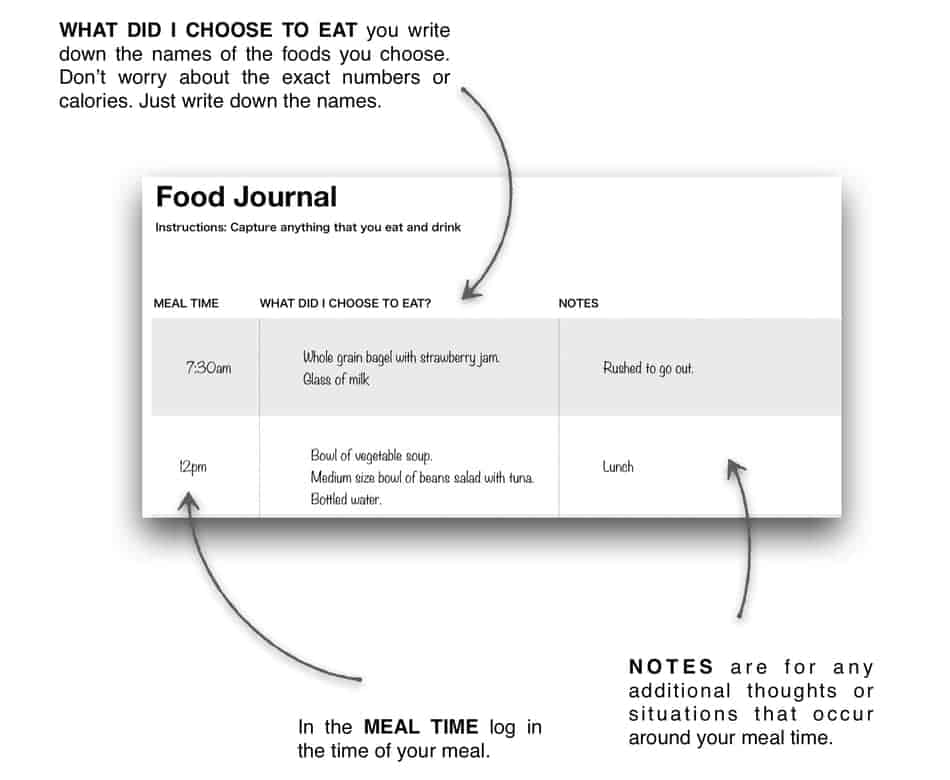
Eat Slowly
Eating slowly will help you with differentiating physical hunger from emotional hunger. It will make your internal body cues more apparent, and therefore you will learn how to spot the difference of what are you really feeling right now.
Purpose of this practice is to learn internal cues of hunger and fullness.
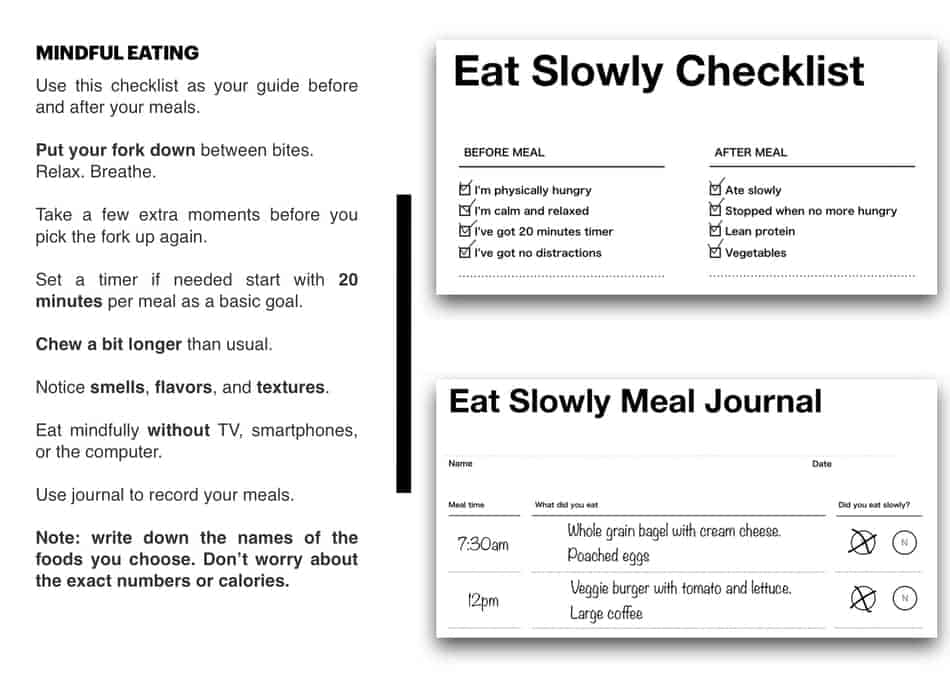
You can use that checklist and follow the steps of what exactly means to eat slowly. Some people prefer a numeric approach like timing your meal to reach 20-minutes. Others like to more hands-on practice like putting the fork down between each bite and relax. Whatever steps feel right for you.
Take Away
There are simple methods to use to make sure you won’t gain weight back on after doing OMAD diet. The fact is the longer you will stay on any intermittent fasting protocol, you will be less hungry, have lower appetite and as a result you will eat less food.
So even after coming back to the regular meals, you will end up with significantly less food.
Go Further with OMAD
This article is part of the Doing OMAD But Not Losing Weight
In the following pages, I show you all the related aspects necessary to troubleshoot all the reasons why OMAD may not work and what you can do about it.
Next: Click here to learn more about how to maintain weight after omad
